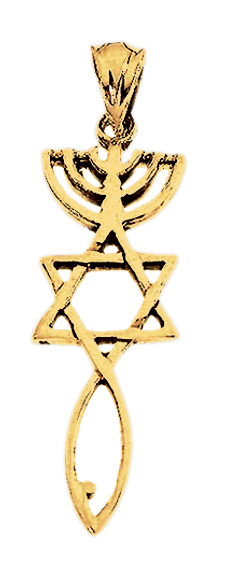Grace that Overflows for the Faithful Servant

(excerpted from Sam’s book: Messianic Life Lessons from the Book of Ruth – The Book of Ruth is traditionally read during Shavuot/Pentecost)
Ruth 2:8-9 – Then Boaz said to Ruth, “Listen carefully, my daughter. Do not go to glean in another field; furthermore, do not go on from this one, but stay here with my maids. 9 Let your eyes be on the field which they reap and go after them. Indeed, I have commanded the servants not to touch you. When you are thirsty, go to the water jars and drink from what the servants draw.”
Grace is all-encompassing
As a Moabite, Ruth was not thought of as legal, let alone accepted, in some eyes. She was a gleaner, a day laborer – little more than a beggar. From what is taught in the Bible, I can imagine her describing her day: “We pick up grains of barley left behind by the reapers. We had to wait until the reapers were finished. We try to keep our distance from them – some of them look nasty. Some of the older gleaners have horror stories to tell. As the new girl on the block, I have the least desirable spots to glean. Even so, some of the other bigger, harder, meaner-looking gleaners are eyeing my pouch of grain as it slowly fills. I hope to get a couple of meals of grain picked up without being insulted, assaulted, or raped; that would be a very good day.”
We saw in the previous chapter that favor (or grace) is not only the beginning of our relationship with God, but that it encompasses every aspect of our life.
Startling Grace
In this small section of Ruth, we learn that unexpected and startling grace greatly helps the faithful servant. When Boaz approached her, she must have wondered, “Why would an owner speak to a gleaner? Is something wrong? What does he want from me?” And then she realized that he was being gracious.
Please note everything Boaz said to Ruth in 2:8-9. Ruth was overwhelmed with gratitude. She had sought grace (Ruth 2:2), but when she found grace, it was greater than she could ever have hoped for. It was so startling that “she fell on her face, bowing to the ground and said to him, why have I found favor in your sight that you should take notice of me, since I am a foreigner?” (Ruth 2:10). How was this startling grace instrumentally provided through Boaz? He recognized her faith in the Lord, and his own faith in the Lord then responded by being gracious (Ruth 2:12). His ministry to Ruth was a work of faith that vindicated his words of faith earlier in Ruth 2:4.
The Desire of God
Like Boaz, our beliefs really are demonstrated and validated by our behavior. If we believe God is gracious, then by faith we should behave graciously. We have the opportunity to extend God’s grace to every person who crosses our path. We might therefore pray, “Lord how do you want me to respond to, treat, or minister to that person? Lord, help me to minister to them on your behalf.” Rather than wondering if it is in our best personal interest to help the helpless, we need to see it as the desire of God, and in His eternal best interest for this person. At each encounter, our faith in the Lord is revealed in our graciousness to others – that graciousness may be startling to the people we encounter.
Aspects of Grace
Ruth 2:8 – Then Boaz said to Ruth, “Listen carefully, my daughter. Do not go to glean in another field; furthermore, do not go from this one, but stay here with my maids.”
Responsible
Grace is responsible. Boaz’s first words to Ruth were, “Listen carefully my daughter!” Not a great pick-up line, right? Actually, he was probably much older (as hinted at in Ruth 3:10) and spoke to her as his own daughter. Literally, the words, “listen to me” are “have you not heard?” as in 1 Kings 1:11 and Isaiah 37:26). These words are a colloquialism for “You must listen to me!” this may not strike you as gracious, but it really is. What Boaz meant was, “This is vital and critical information you must have.” Imagine saying to a first-time visitor in your congregation, “Listen, you must hear this! You must stay in this congregation and serve with the others here!” The visitor might wonder why you’re making the first impression of a traffic cop.
Why was this note of urgency in Boaz’s first words to Ruth? Gleaning was difficult and dangerous work, even in the best of fields. In fact, Boaz had to restrain his own men (2:9), and that was on a farm with a godly owner. He may have known something troublesome about the other farms, since “each did what was right in his own sight” (Judges 21:25). He immediately understood her faith and her vulnerability and felt obligated to help. In fact, he had already taken care of her safety, for we read in Ruth 2:9, “have I not commanded?” Her concerns were uppermost in his mind; her security, her danger, and her call by God. We, too, are to have an urgency in our sense of responsibility to others. I am my brother’s keeper, and therefore “I am a debtor to all” (Rom. 1:14-15).
Urgent
Startling grace is not casual, or optional; it is critical information that you desperately need to have. Even more than Boaz, God knows the score. Because of sin, in God’s sight you’re heading for a waterfall, and He graciously throws you the rope. Take hold of the rope. He does not throw it for fun but for salvation.
Grace is urgent. The Scriptures tell us there is only one way of salvation, and only Yeshua can save any who will believe in Him.
Acts 4:12 – “There is no name under heaven given among men by which we must be saved.”
Acts 16:13 – “Believe on the Lord Yeshua and you will be saved.”
As Boaz urged Ruth, so we must understand that it is vital to respond to grace when it is offered, and to likewise urge others to believe…
…If someone were gracious to you, would you be wise enough to respond? It is vital to respond to grace when it’s offered. When grace beckons, we must respond and not resist as some have (Acts 7:51). When salvation is offered to you, do not delay in receiving Messiah.
Exclusive
Grace is exclusive…As we mature, we refuse evil. Grace tells us where not to be. The other fields were now off limits for Ruth. Startling grace limits your options to God’s will, and God’s will only.
Purposeful
Grace gives us purpose… Startling grace not only has you “refuse the evil”, but also “choose the good.” We are not only asked to turn from evil, but to do good, for we are created to live for God. God’s grace is not just to deliver us from evil, but it also encourages and enables us to live faithfully for God. Similarly in Israel’s history in the Exodus, they weren’t delivered from bondage in Egypt to merely “do their own thing,” but in order to now live for God…
United
Grace brings fellowship. Boaz continued, “And thus, stay here with my maids.” The word “stay” is the Hebrew word for cleave, unite, join, or associate. It is a strong word reflecting a strong commitment. This spoke to Ruth’s heart; she was one who “cleaved” (Ruth 1:14); she was a person who appreciated and demonstrated faithfulness… Cleaving is a result of identifying with those who are committed to the same values and service. Real cleaving always assumes it is “with” others and, therefore represents having true fellowship.
Jew & Gentile, One in Messiah
It was finally understood that God’s grace that can save a Jew can equally save a Gentile, and thus, “…the two become one new man in Messiah” (Eph. 2:14-16). All believers are co-heirs and co-equals.
Boaz was saying, “Ruth, if you believe, you are co-heir and co-equal with my maids.” Amazingly, Boaz anticipated what Paul later revealed: all those in faith are joined in the grace of life – we are one body in Messiah. “Ruth, if you believe, you are united with my maids.” Startling grace encourages you to live out what is already and eternally true. For your own copy of Sam’s Messianic Life Lessons from the Book of Ruth visit https://wordofmessiah.org/bookstore/.




Add Comment